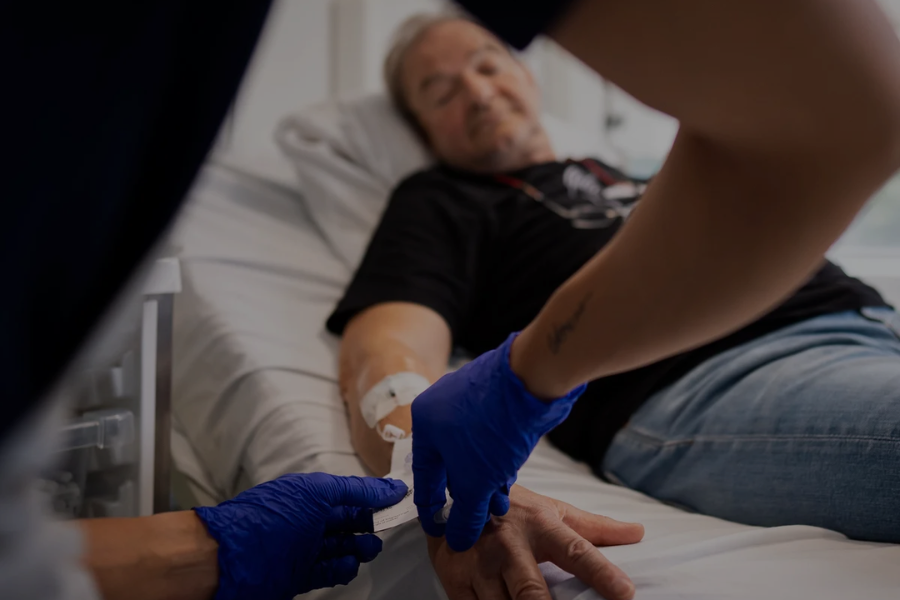In a new monumental milestone in the approach to cancer therapy, doctors have administered the globe’s initial MRI lung cancer vaccine to patients. Such a strategy has the capability of preventing thousands from perishing, particularly if they have advanced forms of lung cancer, a disease that has been known to kill about 1. Every year, 8 million lives are lost to smoking all over the world.
The new vaccine, BNT116 from BioNTech, aims at non-small cell lung cancer (NSCLC) type of cancer, constituting about 85% of all lung cancer cases. The vaccine operates differently by teaching the body to look for and kill cancer cells and having no space for the disease to reoccur.
The first study involving people of BNT116 has already begun as a phase 1 clinical trial at 34 clinical research centers in seven countries: the United Kingdom, the United States, Germany, Hungary, Poland, Spain, and Turkey. These include six centers in England and Wales where the Oxford trial is being conducted; the first British patient got vaccinated early this week.
At least 130 patients with newly diagnosed cancer up to a late and recurrent stage will be recruited in the trial. Some 20 of these patients will be from the UK. Immunotherapy and vaccination aim to increase the immune system’s ability to attack cancerous cells without affecting normal cells, an advantage over conventional chemical therapies.
Professor Siow Ming Lee, a consultant medical oncologist at University College London Hospitals NHS Foundation Trust (UCLH) who is currently heading the hunt for volunteers for the study, said the trial will be a complete revolution in how cancer is handled. “Now, we are moving to this entirely new and very promising era of mRNA-based immunotherapy clinical trials to study lung cancer therapy,” he said. “This is a technology that is the next phase of cancer treatment.”
mRNA technology utilized in the BNT116 is the same technology used in the COVID-19 vaccines. Immature DCs are given markers from NSCLC to introduce the immune system of the body to cancer cells with these markers. This targeted approach is believed to significantly enhance the success of treating lung cancer patients.
The first person in the United Kingdom to receive the vaccine was Janusz Racz – a 67-year-old scientist from London. Racz was diagnosed with lung cancer in May. She underwent chemotherapy and radiotherapy in early June. This was because he was compelled by the kind of background the scientific world had given him. “I could benefit from it, and it’s something which is not available to other patients who would otherwise remain stuck with their cancer, not being able to do anything about it,” Racz said. “And also, I can be a part of the team that can give the prove of concept to this new methodology.”
Racz said he was given six successive shots, each of which is an injection carrying RNAs of dissimilar strands, over 30 minutes at the National Institute for Health Research UCLH Clinical Research Facility. He will take a weekly dose of the vaccine for six weeks and treatments every three weeks until the 54 weeks are completed.
About this new treatment, Professor Lee commented positively and with considerable optimism as to its ability to block the recurrence of cancer – a notorious problem in lung cancer treatment even after surgery and radiation. ‘We hope that by adding this extra treatment the cancer won’t return,’ he said.
Despite the challenges identified in eradicating and treating lung cancer, Lee, who has been working on lung cancer for 40 years, says that there is a bright future in using the mRNA vaccines. “We now know that about 20-30% [of patients] live with stage 4 [of the disease] with immunotherapy; we now want to increase survival,” he said. ‘Perhaps this mRNA vaccine, in addition to immunotherapy, can do the trick.’
The trial is one of the recent initiatives in England to accelerate patient participation in novel cancer vaccine trials under an NHS matching program. It plans to provide patients with innovative therapies for which they may be qualified and which could prove to be a new era in cancer treatment.
The science minister in the United Kingdom, Lord Vallance, was also delighted with the trial launch, noting that it had a great prospect of saving thousands of lives. “This approach can help to save the lives of thousands of lung cancer-diagnosed people every year,” he said.
Racz wants to return to running and finish the London Marathon after treatment. This is hope, precisely what this new vaccine is for lung cancer patients worldwide.















